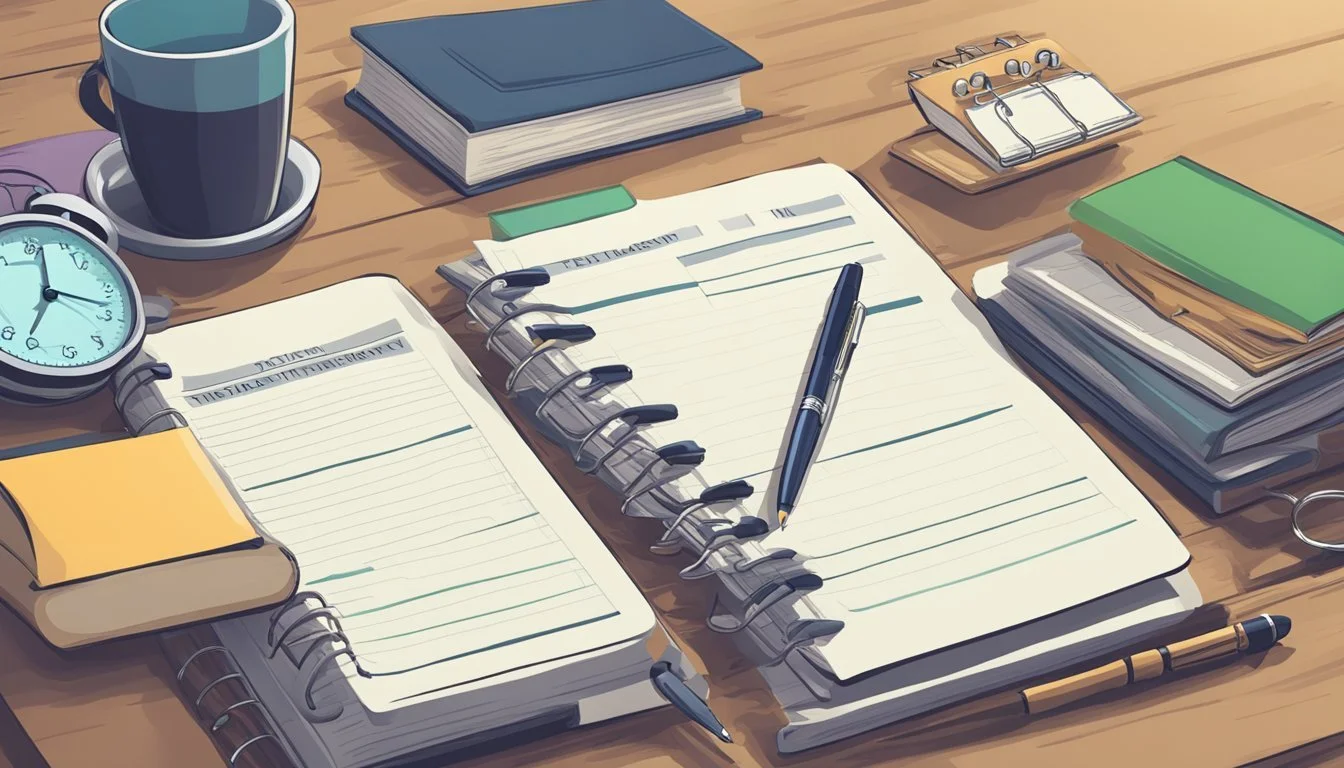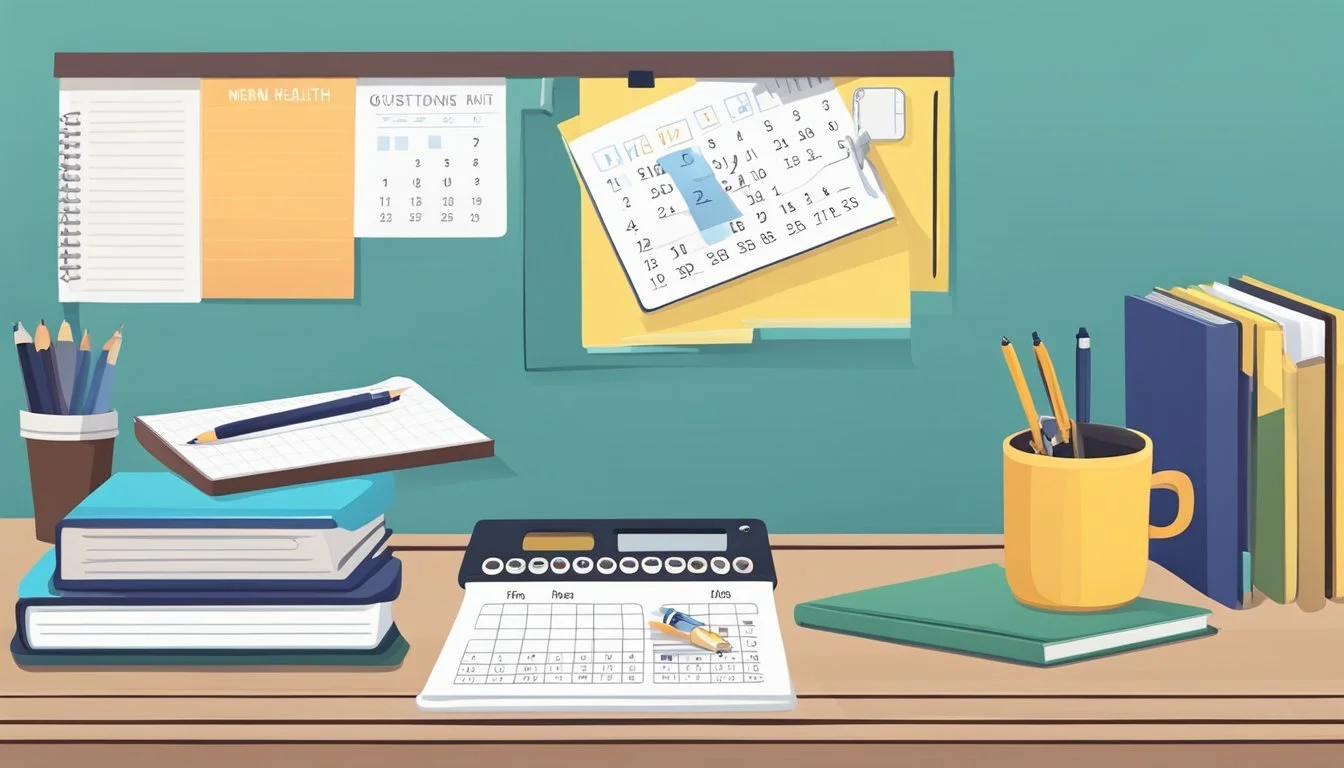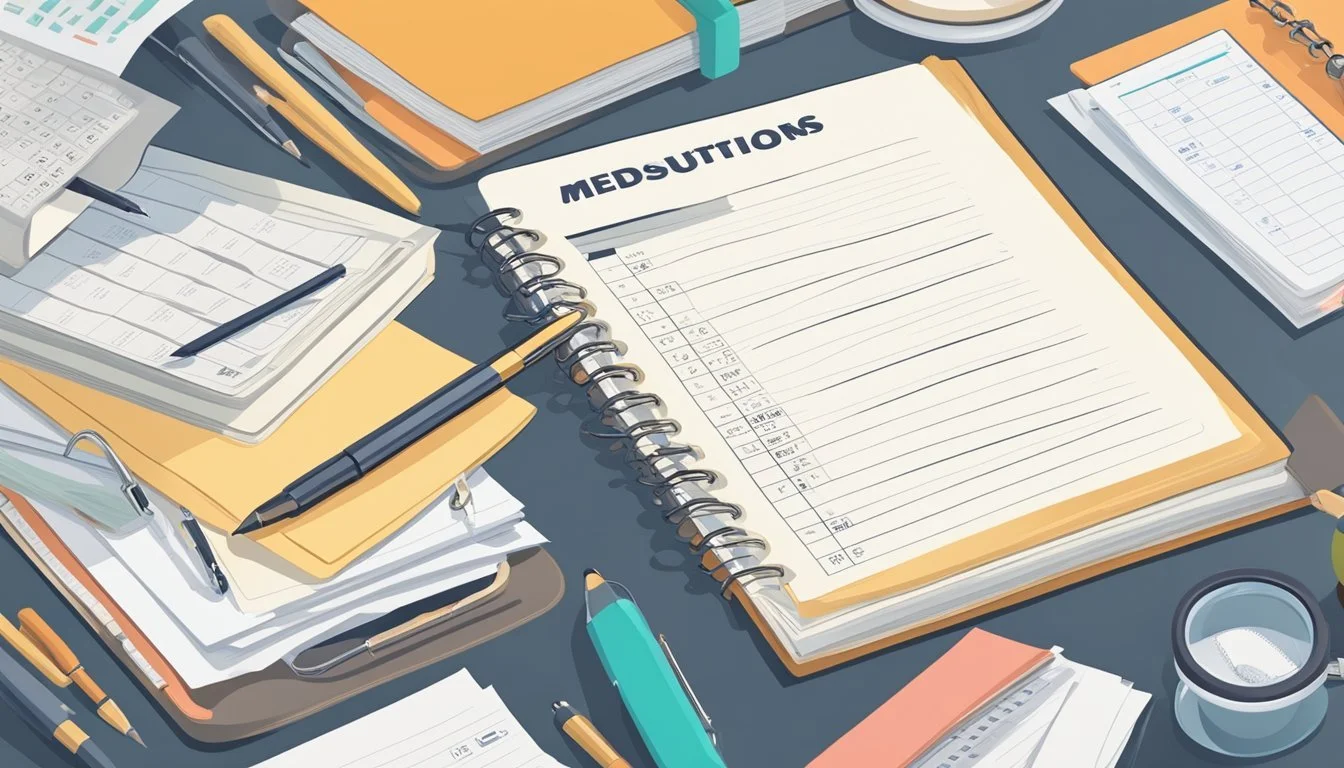9 Ways to Prepare for a Psychiatrist Appointment
Maximize Your Mental Health Consultation
Preparing for a psychiatrist appointment can be a crucial step in addressing mental health concerns. Many individuals feel apprehensive about their first visit, unsure of what to expect or how to approach the experience. Understanding how to prepare can help alleviate anxiety and set the stage for a productive session.
Taking steps to prepare for a psychiatrist appointment can significantly enhance the quality and effectiveness of the visit. These preparations may include reflecting on personal goals, gathering relevant medical information, and considering potential questions to ask during the session. By approaching the appointment with thoughtfulness and organization, patients can make the most of their time with the psychiatrist and work towards better mental health outcomes.
1) Write down your symptoms
Preparing a list of symptoms before a psychiatrist appointment can be highly beneficial. This practice helps patients articulate their experiences more accurately and ensures important details are not forgotten during the session.
Symptoms can include changes in mood, sleep patterns, appetite, energy levels, or cognitive functions. Patients should note the frequency, duration, and intensity of each symptom they experience.
It's also helpful to record any triggers or circumstances that seem to worsen or alleviate these symptoms. This information can provide valuable context for the psychiatrist to understand the patient's situation better.
Patients should be as specific as possible when describing their symptoms. Instead of simply stating "I feel sad," they might write "I've felt deeply sad for the past three weeks, especially in the evenings."
This written record can serve as a useful reference during the appointment, helping patients communicate their concerns more effectively and enabling the psychiatrist to make a more informed assessment.
2) Document any past mental health issues
Keeping a record of past mental health experiences can significantly aid in the psychiatric evaluation process. Patients should compile a list of previous diagnoses, treatments, and medications they have tried.
This documentation should include the dates and duration of any prior therapy sessions or counseling. It's helpful to note which approaches were beneficial and which were less effective.
Patients can also describe any significant life events or traumas that may have impacted their mental health. This information provides context for the psychiatrist to better understand the patient's history.
Noting patterns in symptoms over time can be valuable. Patients might record when certain issues first appeared and how they have evolved.
Including any family history of mental health conditions is also important. This genetic information can offer insights into potential risk factors or predispositions.
By preparing this comprehensive mental health history, patients enable their psychiatrist to make more informed decisions about diagnosis and treatment options.
3) List all medications you are taking
Creating a comprehensive list of all medications is crucial when preparing for a psychiatrist appointment. This list should include prescription drugs, over-the-counter medications, and any supplements or herbal remedies.
For each item, note the name, dosage, and frequency of use. It's important to include even occasional medications, such as pain relievers or sleep aids.
Patients should also mention any recently discontinued medications and when they stopped taking them. This information can provide valuable insights into the patient's medical history and current state.
If possible, bring the actual medication bottles or packages to the appointment. This can help ensure accuracy and provide additional information the psychiatrist might find useful.
Be prepared to discuss any side effects experienced from current medications. This information can help the psychiatrist make informed decisions about potential treatment options or adjustments to existing medications.
4) Prepare your treatment goals
Before meeting with a psychiatrist, it's important to reflect on what you hope to achieve through treatment. Consider your main concerns and the specific ways you'd like your mental health to improve.
Think about both short-term and long-term goals. Short-term goals might include reducing anxiety symptoms or improving sleep. Long-term goals could involve managing a chronic condition or enhancing overall quality of life.
Be realistic in your expectations. Progress often takes time, and setting achievable objectives can help maintain motivation. Consider writing down your goals to clarify your thoughts and priorities.
Remember that treatment goals may evolve over time. Be open to adjusting them as you work with your psychiatrist and gain new insights into your mental health. Your input is valuable in shaping an effective treatment plan.
By preparing your treatment goals in advance, you can have a more focused and productive first appointment. This preparation allows you to clearly communicate your needs and expectations to your psychiatrist.
5) Bring a trusted friend or family member
Attending a psychiatrist appointment with a trusted companion can provide valuable support and perspective. A friend or family member can offer emotional reassurance during what may be a challenging experience.
This support person can help take notes during the session, ensuring important details are not forgotten. They may also assist in recalling relevant information about symptoms or experiences that the patient might overlook.
Having someone familiar present can help create a more comfortable atmosphere. This can lead to more open and productive conversations with the psychiatrist.
The companion can provide additional insights into the patient's behavior or symptoms that the patient may not have noticed. This extra information can be helpful for the psychiatrist in forming a comprehensive understanding.
It's important to choose someone who respects boundaries and understands the confidential nature of the appointment. The patient should feel comfortable discussing personal matters with this person present.
Before the appointment, the patient and their companion should discuss expectations and boundaries. This ensures both are on the same page regarding the companion's role during the session.
6) Make a list of questions
Preparing questions in advance can help maximize the value of a psychiatrist appointment. Patients should consider their main concerns and symptoms to formulate relevant inquiries.
Questions about diagnosis, treatment options, and medication side effects are often helpful. Patients may want to ask about the expected timeline for improvement and follow-up appointments.
It's also useful to inquire about lifestyle changes that could support mental health. Questions about coping strategies, self-care techniques, and resources for additional support can be beneficial.
Patients shouldn't hesitate to ask for clarification on any terms or concepts they don't understand. Writing down questions ensures important topics aren't forgotten during the appointment.
Bringing a list demonstrates engagement in the treatment process. It allows for a more productive conversation and helps the psychiatrist tailor their approach to the patient's needs.
7) Be ready to discuss lifestyle habits
Psychiatrists often inquire about patients' daily routines and habits to gain a comprehensive understanding of their mental health. These discussions can reveal important factors that may impact a person's wellbeing.
It's helpful to reflect on sleep patterns, exercise routines, and dietary habits before the appointment. Consider any recent changes in these areas, as they can significantly affect mood and mental state.
Substance use is another crucial topic. Patients should be prepared to discuss alcohol consumption, smoking habits, and any recreational drug use. Honesty is key, as this information helps the psychiatrist make accurate assessments.
Work-life balance and stress management techniques are also relevant. Think about how you handle daily stressors and what coping mechanisms you employ. This information can guide the psychiatrist in developing appropriate treatment strategies.
Social interactions and relationships play a vital role in mental health. Be ready to share information about your support system and any challenges you face in your personal or professional relationships.
8) Gather any relevant personal history
Collecting pertinent personal history can greatly enhance the effectiveness of a psychiatrist appointment. Patients should reflect on significant life events that may have impacted their mental health.
This includes major transitions, losses, traumas, or relationship changes. Noting down childhood experiences, family dynamics, and educational background can provide valuable context for the psychiatrist.
It's helpful to create a timeline of symptoms, including when they first appeared and any fluctuations in intensity. Patients should also consider listing any previous mental health treatments or therapies they've undergone.
Documenting substance use history, including alcohol, tobacco, and recreational drugs, is important. Patients should be prepared to discuss their current living situation, work environment, and social support system.
Gathering this information beforehand allows for a more comprehensive discussion during the appointment. It helps the psychiatrist gain a clearer picture of the patient's life experiences and potential contributing factors to their current mental state.
9) Know your family's medical history
Familiarizing yourself with your family's medical history is crucial before a psychiatrist appointment. Mental health conditions often have genetic components, making this information valuable for diagnosis and treatment planning.
Try to gather information about any mental health issues that have affected your immediate and extended family members. This includes conditions like depression, anxiety, bipolar disorder, schizophrenia, and substance abuse disorders.
If mental health is a sensitive topic in your family, consider approaching a relative you feel comfortable talking to. They may be able to provide insights or details that others are reluctant to discuss.
Remember to include information about physical health conditions as well. Some medical issues can impact mental health or interact with psychiatric medications.
Bring this information to your appointment, even if it's incomplete. Your psychiatrist can use it to better understand your genetic predispositions and tailor their approach to your specific needs.
Understanding the Role of a Psychiatrist
Psychiatrists are medical doctors who specialize in diagnosing and treating mental health disorders. They possess a unique set of skills and qualifications that allow them to provide comprehensive care for patients with various psychological conditions.
What to Expect During Your Visit
A typical psychiatry appointment begins with a thorough assessment of the patient's mental health history and current symptoms. The psychiatrist will ask questions about mood, thoughts, behaviors, and any recent life changes. They may also inquire about physical health, as some medical conditions can affect mental well-being.
During the visit, the psychiatrist will observe the patient's demeanor and communication style. This helps in formulating an accurate diagnosis. Patients should be prepared to discuss their concerns openly and honestly.
The psychiatrist may request additional tests or evaluations if needed. These could include blood work, psychological assessments, or neurological exams.
Common Psychiatric Treatments
Psychiatrists employ various treatment modalities to address mental health issues. Medication management is a key aspect of psychiatric care. Psychiatrists can prescribe and monitor psychotropic medications such as antidepressants, mood stabilizers, or antipsychotics.
Psychotherapy is another essential tool in a psychiatrist's arsenal. This may include cognitive-behavioral therapy, psychodynamic therapy, or other evidence-based approaches. Some psychiatrists provide therapy themselves, while others may refer patients to psychologists or therapists for ongoing counseling.
In certain cases, psychiatrists might recommend more intensive treatments. These can include:
Electroconvulsive therapy (ECT)
Transcranial magnetic stimulation (TMS)
Partial hospitalization programs
Inpatient care for severe conditions
The treatment plan is typically tailored to each patient's specific needs and may evolve over time based on progress and response to interventions.
Gathering Important Information
Preparing key details about your health history and current medications is crucial for a productive psychiatrist appointment. This information helps the doctor understand your background and make informed decisions about your care.
Medical and Family History
Compile a comprehensive list of your medical conditions, both past and present. Include any major illnesses, surgeries, or hospitalizations you've experienced. Note significant health issues in your immediate family, especially mental health conditions. This information can provide insight into potential genetic factors or predispositions.
Be prepared to discuss any previous mental health treatments or therapies you've undergone. Include the names of providers, dates of treatment, and your experiences with these interventions. If you've had prior psychiatric diagnoses, bring documentation if available.
Medication and Supplement Lists
Create a detailed list of all medications you currently take, including prescription drugs, over-the-counter medications, and supplements. For each item, note the name, dosage, frequency, and reason for taking it. Include any medications you've recently stopped or changed.
Be sure to mention any allergies or adverse reactions you've had to medications in the past. This information is vital for your psychiatrist to make safe and effective treatment decisions. If you're unsure about certain details, contact your pharmacist or primary care physician for clarification before your appointment.
Practical Tips for Appointment Day
Proper preparation can significantly enhance your psychiatrist appointment experience. Consider time management strategies and bringing a trusted support person to maximize the benefits of your visit.
Time Management and Scheduling
Arrive at least 15 minutes early to complete any necessary paperwork and settle your nerves. Check traffic conditions beforehand to avoid unexpected delays. Set a reminder on your phone the day before and morning of the appointment.
Bring a list of current medications, including dosages and frequencies. This information helps the psychiatrist make informed decisions about your treatment plan.
Schedule the appointment for a time when you're typically alert and focused. Avoid booking it immediately after work or other stressful activities that might affect your mood or ability to communicate effectively.
Bringing a Support Person
Consider asking a trusted friend or family member to accompany you. They can provide emotional support and help remember important details discussed during the appointment.
Brief your support person on your main concerns and goals for the visit. They can help ensure these points are addressed if you feel overwhelmed or forgetful.
A support person can take notes during the session, allowing you to focus fully on the conversation with your psychiatrist. This can be especially helpful if you're discussing complex topics or receiving new information about treatment options.
Inform the psychiatrist's office in advance if you plan to bring someone. Some practices may have policies regarding additional attendees in appointments.








